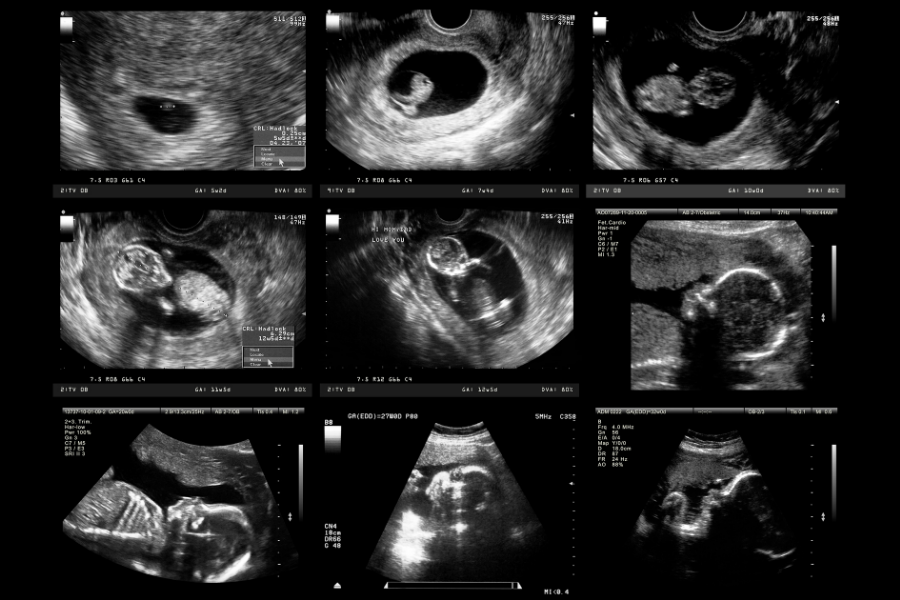
Fibroids are common benign tumors many women have to deal with at some point in their life. An estimated 70 percent of females develop fibroids by the time they’re 50. While these tumors are non-cancerous, they can cause a myriad of issues.
Depending on the location and size of the fibroids, you might experience heavy bleeding, pelvic pain, discomfort during sex, and other unwanted symptoms. But do fibroids affect pregnancy and fertility?
Fibroids and Fertility
Unfortunately, fibroids can impact your ability to get pregnant. However, the good news is that most women with fibroids can conceive naturally. With guidance and care from a fibroids specialist, the odds of having a successful pregnancy are even higher. Fertility issues are relatively rare. Whether or not they cause infertility depends on many factors.
One crucial detail that makes fibroids affect pregnancy and fertility is location. These tumors can develop in various parts of the uterus. Submucosal fibroids generally have the most impact on fertility. These growths appear just under the endometrium and protrude into the uterine cavity. This type of fibroid makes up just five percent of all fibroid cases. They’re the rarest but also one of the most problematic.
Larger fibroids over six centimeters in diameter are also to blame for fertility issues. Regardless of the tumor’s location, the sheer size of the growth can cause significant fertility problems.
These types of fibroids can affect fertility in a few different ways.
First, the growths can change the shape of the uterus entirely. As a result, fewer sperm can enter the uterus. Furthermore, the malformed nature of the uterus can disrupt the sperm’s movement as it makes its way to the egg during conception.
Fibroids can also block the fallopian tubes or change the size of the uterine lining. Even if the sperm successfully penetrates the egg, there’s no guarantee that the embryo will implant in the uterine wall. Fibroids can restrict blood flow, stopping development before it even begins.
It’s true that fibroids affect pregnancy, but these cases are rare. Most women with these tumors can conceive without any issues. If you’re in doubt, don’t hesitate to reach out. Dr. Tahery specializes in fibroid evaluation and treatment.
RELATED: Minimally Invasive and Non-Surgical Fibroid Treatment Options
Fibroids During Pregnancy
One of the most common questions people have about these non-cancerous growths is whether or not fibroids affect pregnancy and delivery. Once again, it’s possible but rare.
Between two and 12 percent of pregnant women receive a fibroid diagnosis. But an estimated 10 to 30 percent of that figure develop complications during pregnancy. That means most women with fibroids have perfectly normal pregnancies without any challenges.
In those instances when fibroids affect pregnancy, it’s usually in the first trimester. Experts believe that these growths rely on estrogen to grow. Because your body produces more estrogen during the first third of the gestation period, that’s when complications manifest.
The biggest concern due to fibroids in pregnant women is preterm births and the possibility of miscarriage. Unfortunately, women with fibroids have an estimated 14 percent chance of miscarriage. That’s noticeably higher than the 7.6 percent risk in women without fibroids. The dangers increase with larger tumors.
Fibroids can also put you at a higher risk of preterm birth before 37 weeks and cesarean delivery.
Other potential concerns include extreme pain and developmental problems. As the uterus expands in the second and third trimesters, it can push against the tumors. The fibroids may twist or even outgrow their blood supply, creating severe stomach pain that could result in miscarriage.
In cases of extreme fibroid growth, placental abruption can occur. When this happens, the placenta tears away from the uterine wall, cutting off oxygen to the fetus and causing heavy bleeding.
Diagnosis and Treatment of Fibroids
The best way to minimize the ways fibroids affect pregnancy is to be proactive about treatment. Diagnosing these uterine tumors is a straightforward process. We use 3D ultrasound technology to evaluate the size, location, and the number of growths.
After diagnosis, we can recommend a course of action that’s right for your needs. Possible treatment options include hormone therapy, radiofrequency ablation, and embolization. Hormone therapy uses gonadotropin-releasing hormone agonists to decrease estrogen and progesterone levels that feed the fibroids. Meanwhile, ablation and embolization aim to reduce the size of the tumors and cut off their blood supply.
Whether you have plans to get pregnant or not, contact Dr. Michael Tahery to explore treatment options for your fibroids. Dr. Michael Tahery is a urogynecologists who understands the complex nature of fibroids and their potential impact on pregnancy and fertility. Contact our offices today to learn more and schedule your appointment.